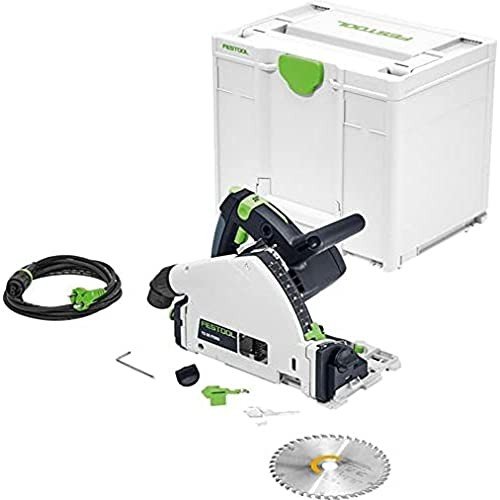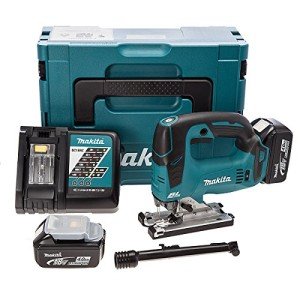The 10 Most Scariest Things About Shop Power Tools
Dalton
0
5
2024.12.29 22:10
 The Workhorse of the Shop best power tools Tools
The Workhorse of the Shop best power tools ToolsHand-held power tools are powered by electricity, internal combustion or compressed air. They can be used to cut, drill grind or sand materials.
One of the primary power tools on line that every woodworker should have is a tablesaw which can take care of nearly any cutting task. Also consider a miter saw stand as well as a drill/driver kit.
Table Saw
A table saw is the mainstay of the online shop tools Power Tools [Telegra.Ph] and may be the most versatile tool for woodworking. It can rip, cross-cut, miter cut, and even dado and rabbet stock. It is also able to cut angled surfaces to make frames, chests, or planters.
The circular blade of the saw is massive and is able to rotate at a high rate. It has tables of a decent size (infeed and outfeed) which support the material as it passes through the blade. A blade guard shields the saw blade, preventing wood from getting caught and then throwing it back to the operator. The saw is also protected by a splitter or riving blade. It is a vertical extension directly behind the blade that can be in the shape of pin or fin.
Contractor-style table saws have larger motors that are hinged from the rear of the saw and drives the blade with two or more rubber V-belts. These saws are used primarily by carpenters, however they are also found in the home shop. They have more features, such as the sliding mitertable, as opposed to portable ones.
Table saws with smaller sizes have an easier motor, which is usually belt-driven. These saws are more geared towards hobbyists and domestic use. A lot of them have a sliding mitertable, which allows users to make complex cuts, like those needed for picture and mirror frames, or boxes, cases, and drawers.
Making use of a table saw in a safe manner is important to avoid injuries. Always remain to the left of the blade when you are making rip cuts and keep your hands away from the edge of the saw. When cutting, it is essential to employ a guide block or push stick. This is particularly true in commercial environments where HSE guidelines require you to keep at least one hand span from the blade.
A lot of woodworking projects require tapered legs. The most efficient and quickest method of cutting them is using a table saw and a simple tapering jig you can make at home. A tapering jig is adjustable to any angle that is between zero and fifteen degrees. This lets you cut any tapered legs in your workshop.
Bandsaw
Bandsaws can be used to cut wood and metal into various shapes. It's a fantastic tool for customizing fabrication. It's also a valuable tool store online for furniture making, cabinetry as well as other woodworking projects. The saw is able to be used to cut circular cuts, including circles, and is able to cut through various materials, including ice.
There are two main types of bandsaws: the vertical and horizontal. Vertical bandsaws are excellent at resawing, curved cuts and freehand cutting. Horizontal bandsaws produce a more straight and angled cut. The saw can either be operated manually or using powered feed systems. Manual bandsaws require the user to manually lower and raise the blade for each cut, whereas power-fed systems are more efficient.
When using bandsaws, it is important to put safety first. Wear protective equipment, such as safety goggles or ear protectors to shield yourself from noise and sawdust. To prevent accidents and injuries, keep your hands and feet clear of the blade. It is also important to set up the saw properly for safe operation. Make sure that the blade and guides are properly aligned and the blade is properly secured.
Depending on the material you're cutting, it could be required to adjust the saw's speed and feed rate to achieve optimal results. Regular maintenance, including adjustments to the blade tracking and tension, will ensure that your bandsaw produces accurate and clean cuts, and will also prolong the life of your.
The blade on a bandsaw is usually made of high-quality steel that's been treated to withstand the strains and fatigue of frequent use. The teeth of the saw are welded on which gives it a distinctive shape and protecting against damage from the sudden impact.
The throat depth of bandsaws determines the length of a piece of wood it can cut. The larger throat depths can be used to cut larger lumber pieces and are ideal for resawing or ripping, both of which involve cutting across the grain. Some bandsaws come with tilting tables that can be used to create angles and to reuse scrap wood.
Dust Collector
Woodworking tools generate a lot of dust and chips, which need to be removed to safeguard your health and maintain the cleanliness of your shop and the longevity of your equipment. The type of collector you require will depend on the number and size of the power tools you employ in your woodshop as well in the frequency of their use. The top woodworking dust collectors provide exceptional filtration that will remove fine particles from the air and help you breathe healthier, cleaner and more comfortable as you work.
Nederman offers dust collection systems to meet your requirements, whether you are a one-man shop, or a large-scale production woodworking facility. Our woodworking dust management, waste management, and combustible-dust solutions blend environmental care with improvements in the productivity of machines.
There are many types of woodshop dust collection systems available on the market and include:
A dust extractor that is basic can replace your shop vacuum. The units connect to your power tools via a hose that connects to the dust port on your machine. When you switch on your device the hose will be activated and pulls in dust and debris from your workspace.
Based on the brand you choose, most dust extractors have HEPA filters that effectively eliminate the fine dust particles that could cause respiratory issues over time. They also typically come with a higher CFM (cubic feet per minute) airflow, which allows for a greater volume of air. They could also have an airspeed gauge or system that automatically cleans the filter.
If you own a larger shop or prefer the flexibility to use your woodworking equipment at any time, you should consider a portable woodshop dust collector that has an energy-saving battery that can be recharged and an in-line connection that connects directly to an electric tool. These tools are simple to transport and can handle multiple tools at a time. They are usually compact with a caster base and come with a collection bag or reusable filter for simple emptying.
If you're an experienced woodworker or contractor, you may require a stronger dust collection system. These units are more expensive than an extractor, but offer a wider range of filtration. They can also be hung on a wall or in their own room. These units can be used to clean up drywall, sanding, and other demolition projects, as well being used for woodworking.
Planer
The planer is the most efficient power tool that every woodshop needs to be without. It's not the most glamorous or flashy tool, but it can make a huge impact on your ability to transform rough lumber into beautiful and useful projects. It can be used to reduce boards to a specific thickness. It works with softwoods as well as hardwoods. It is also very useful to tackle unwieldy, knotty or bent stock that is difficult to work with using hand tools.
A portable planer of high quality is worth the admission price to any woodworking workshop. It is possible to find a planer at a great price, but you must pay attention to the condition and the infeed and outfeed table. These items will determine the performance of your planer and if it will last for a long period before you have to replace parts. If the cutter head isn't of a high quality it will quickly wear down and you might need to replace it within an extremely short period of time.
Many people confuse the planer and a jointer, but they are not the same machines. A jointer makes the boards straight and flat, whereas the planer cuts the boards down to a certain thickness. Some woodworkers use both machines simultaneously to complete a project. But, they're equally essential for any workshop that handles rough lumber on a daily basis.
 A commercial-grade planer is an excellent purchase if you are looking to work with wood professionally and want high-quality equipment. They are designed to operate in situations where speed of production is more important than finishing the surface. These machines will save you a amount of time, but you should be cautious not to overload them. They could be able to burn out. They will also need to be maintained properly to ensure that they continue to operate properly. A routine of regular maintenance in the shop will help prolong the life of your planer.
A commercial-grade planer is an excellent purchase if you are looking to work with wood professionally and want high-quality equipment. They are designed to operate in situations where speed of production is more important than finishing the surface. These machines will save you a amount of time, but you should be cautious not to overload them. They could be able to burn out. They will also need to be maintained properly to ensure that they continue to operate properly. A routine of regular maintenance in the shop will help prolong the life of your planer. 